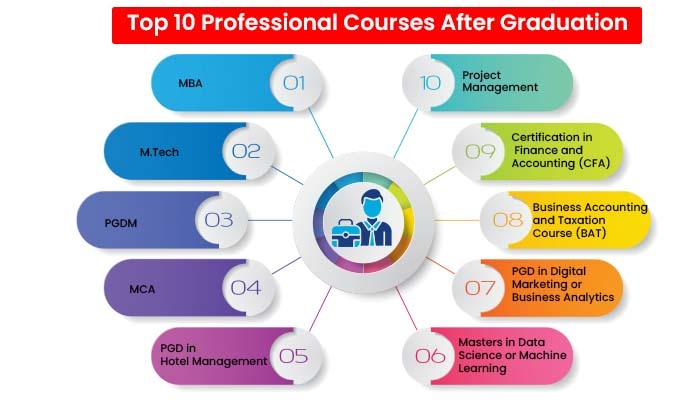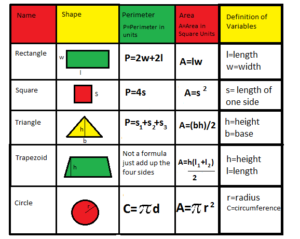Graduation is a huge achievement—and an even bigger turning point in life. After years of lectures, exams, and group projects, you finally cross the finish line. But now comes the real question: What to do after graduation?
Don’t worry if you’re feeling uncertain. Whether you’re ready to launch your career, continue your studies, or take some time to explore, this post-graduation guide from Study Rhino is here to walk you through all your options after graduation.
1. Hit Pause and Celebrate – The First Step After Graduation
Before you dive headfirst into planning your future, give yourself time to relax and reflect. You’ve earned it!
Taking a short break after graduation can help you:
Recharge mentally and physically
Reflect on what you’ve achieved and learned
Get clarity on what you want next
Avoid burnout before entering the next phase of life
Whether it’s a weekend getaway, a hobby you’ve put off, or just downtime at home—use this transition time wisely after graduation.
2. Choose Your Direction: What to Do After Graduation?
After graduation, most students consider one of the following paths:
A. Continue Your Education After Graduation
If you want to specialize or gain a competitive edge in your field, pursuing further education might be the way to go.
Popular options include:
Master’s programs (local or international)
Professional qualifications (e.g., CA, CFA, PMP, TEFL)
Online certifications in high-demand areas like AI, digital marketing, coding, or UX design
👉 Pro tip: Only choose further education if it genuinely supports your career or personal goals—not just to “buy time” after graduation.
B. Step Into the Job Market: What Jobs to Look for After Graduation?
Starting your career can be exciting and nerve-wracking. But don’t stress—you don’t need to land your dream job right away.
Get started by:
Crafting a professional CV
Setting up a strong LinkedIn profile
Applying for entry-level jobs or internships
Practicing interview skills and salary negotiation
Sectors that often hire fresh graduates include:
IT and software
Media and communication
Finance and accounting
Education
Healthcare
Marketing and sales
👉 Remember: Your first job after graduation is a launchpad—it’s okay if it’s not perfect.
C. Take a Gap Year or Explore Non-Traditional Paths After Graduation
Not sure what you want yet? That’s totally fine.
A gap year can be incredibly valuable if used wisely:
Travel and experience new cultures
Join volunteer programs to gain perspective
Freelance or work part-time to explore different roles
Start your own project or business
Teach English abroad or enroll in global exchange programs
👉 Key point: Make sure your gap year has structure. Keep learning and growing after graduation.
3. Build Skills Employers Love After Graduation
No matter your degree, employers also want practical and soft skills. Now is the time to develop them.
Top skills to work on:
Communication (verbal + written)
Critical thinking and decision-making
Teamwork and leadership
Problem-solving
Digital skills (Excel, Canva, coding, etc.)
Emotional intelligence and adaptability
Where to upskill:
Online platforms (Udemy, Coursera, edX, LinkedIn Learning)
Volunteering or internships
Workshops and bootcamps
Industry-specific webinars
👉 Your degree gets you in the door. Skills help you stay and grow after graduation.
4. Start Networking After Graduation (Even If You’re an Introvert)
One of the smartest things you can do after graduation? Build your network. Career opportunities often come through people, not job portals.
How to start:
Attend career fairs and alumni events
Join LinkedIn groups and online communities
Reach out to people in roles you admire
Ask professors or mentors for advice
Join industry-specific organizations or clubs
👉 Follow up with people you meet. A thank-you message or email can go a long way.
5. Consider Going International: Study or Work Abroad After Graduation
Whether it’s for study, work, or personal growth, going abroad can open up doors you never imagined.
Benefits of studying/working abroad after graduation:
Exposure to diverse cultures and ideas
Chance to learn new languages
Global job opportunities
Boosted confidence and independence
Top destinations for grads:
Canada
Germany
UK
USA
Australia
Singapore
👉 Tip: Research visa requirements, costs of living, and available scholarships early on.
6. Learn How to Manage Your Finances After Graduation
Now that you’re officially an adult, managing money becomes a necessary skill.
Things to get good at:
Budgeting and tracking expenses
Saving regularly (even small amounts)
Understanding taxes and insurance
Building a credit score
Avoiding high-interest debt
Use free budgeting tools like:
Mint
YNAB (You Need a Budget)
Goodbudget
Spreadsheets (Google Sheets works great!)
👉 Start early and build healthy money habits that will last a lifetime after graduation.
7. Look After Your Mental Wellbeing After Graduation
Graduating is exciting—but it can also be stressful. A big life shift like this can bring on anxiety, self-doubt, or burnout.
Stay grounded by:
Talking to a counselor or therapist
Practicing mindfulness or journaling
Keeping a regular sleep and exercise routine
Avoiding toxic social comparisons
Setting small, achievable goals
👉 You don’t have to figure everything out right now after graduation. And you’re not alone.
8. Prepare for Detours After Graduation
Not everything will go to plan. Maybe you won’t get that dream job, or you’ll discover you want to switch fields. That’s normal.
Be open to:
Rejections—they’re redirections
Exploring new roles or industries
Temporary jobs that help build experience
Revisiting your goals every 6-12 months
👉 Career success after graduation is not a race—it’s a marathon.
9. Stay Curious and Keep Learning After Graduation
The world is evolving fast. The best way to stay ahead? Never stop learning.
Ways to stay sharp:
Read books, blogs, and articles
Follow thought leaders in your industry
Watch educational videos and documentaries
Listen to podcasts that challenge your thinking
Take one short online course every few months
👉 You don’t stop learning when school ends. That’s when real learning begins after graduation.
10. Set Goals and Make a Plan After Graduation
While it’s okay to explore and experiment, having a rough roadmap helps keep you focused.
Try this:
Define short-term goals (3–6 months)
Create medium-term goals (1–2 years)
Imagine your long-term goals (5–10 years)
Track your progress regularly
Celebrate small milestones
Tools like Notion, Trello, or a simple notebook can help you stay organized and motivated.
Wrapping It Up – Your Future Starts Now
Graduation isn’t the finish line—it’s your launchpad. Whether you’re stepping into a job, heading to grad school, taking a break, or starting something totally new, this moment is full of possibility.
Here’s what matters most:
Stay open-minded and curious
Keep learning, even outside of the classroom
Be patient with yourself
Ask for help when you need it
Trust the journey after graduation
Study Rhino’s Final Words of Wisdom 🦏
You don’t have to have it all figured out. Most people don’t. Life after graduation is a mix of planning, experimenting, learning, and growing. Take it one step at a time.
And whenever you need advice, motivation, or direction—Study Rhino is here for you.
Your future is yours to shape. So start strong. Start smart. And keep moving forward.
Key Takeaways:
Reflect, recharge, and celebrate after graduation.
Explore options: study further, enter the job market, or take a gap year.
Build critical skills, network, and manage finances.
Stay adaptable and always keep learning.




